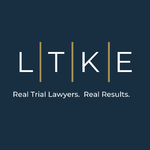Health Reimbursement Accounts (HRA) may work in conjunction with any insurance plan. It can be designed to cover specific health expenses, or insurance plan cost-sharing, such as co-pays, coinsurance or a portion of the deductible on a High Deductible Health Plan. HRAs are funded and owned solely by the employer and are utilized for the benefit of employees to cover the cost of medical expenses chosen by you. An employer’s exposure to Federal and State taxes, including Social Security and Medicare taxes can be reduced by an HRA, and your contributions may qualify as a fully deductible business expense. HRAs may allow employees to rollover unused funds through consecutive benefit years, or may be designed to allow unused funds to be rolled back to the employer. BenefitsPlus has partnered with Datapath to provide direct access to HRA funds through the use of the MySource Debit card system, making the claims process easy for your employees.
- TPS Group
- Services
- TPS Group Medical
- Health Reimbursement Accounts

Health Reimbursement Accounts
Health Reimbursement Accounts (HRA) may work in conjunction with any insurance plan. It can be designed to cover specific health expenses, or insurance plan cost-sharing, such as co-pays, coinsurance or a portion of the deductible on a High Deductible Health Plan. HRAs are funded and owned solely by the employer and are utilized for the benefit of employees to cover the cost of medical expenses chosen by you.
Related to: Group Medical Consultants, Employee Group Benefits, Group Life & Health Insurance
Further Reading: Health Reimbursement Accounts
Reviews
The Latest News

The 401(k) Match True-Up to Help Employees Get the Full Match
Posted on Feb 15, 2026
Matching contributions are one of the most valuable benefits in a 401(k) plan — and employees often plan their savings strategy around getting the full match. But there’s an overlooked detail in many plans that can unintentionally reduce the match for certain participants: how the match is calculated during the year. »

Rescuing a Forgotten 401(k): How to Track Down and Reclaim Your Old Retirement Accounts
Posted on Nov 5, 2025
It’s surprisingly easy to lose track of a 401(k) when you change jobs. In fact, millions of Americans have “orphan” accounts, which are small retirement balances left behind at former employers. »

Why Every Employee Should Check Their 401(k) at Least Once a Year
Posted on Oct 8, 2025
It’s easy to set up a 401(k) and then forget about it, especially when life gets busy. But the “set it and forget it” approach can cost you over the long term. Checking your 401(k) at least once a year ensures your retirement savings stay on track and aligned with your goals. »








